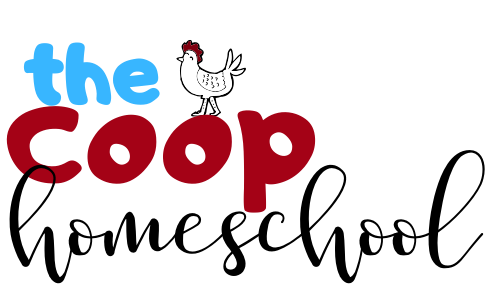Is My Child Ready for Kindergarten?
Some links may be affiliate links. We may get paid if you buy something or take an action after clicking one of these
This topic is one that stresses out many parents, but it is important to recognizing kindergarten readiness and when to push. For those that homeschool in a more child-led manor, it feels like being an athlete on the bench ready to go in. I’ve trained, I’m eager, but I’m waiting for just the right moment.
There are many ways to determine kindergarten readiness, but I think it important to define what I mean by kindergarten before we dive in.
What is Kindergarten?
Wikipedia defines it as: kindergarten is a preschool education approach based on playing, singing, practical activities such as drawing, and social interaction as part of the transition from home to school.
That was the original definition of kindergarten - an institution originally created in Bavaria in the 18th century.
The definition most use now would be closer to: the elementary school grade level that prepares children for 1st grade - typically for 5-6 year olds.
This definition, though loose, more closely represents what I picture when I think of kindergarten. While kindergarten is not mandatory in the state of California, I would like to note that kindergarten in California does have it’s own set of standards that public schools aim to meet:
CDE.CA.GOV - Language Arts
CDE.CA.GOV - Math
What Does Readiness Look Like?
There are many readiness checklists out there to determine readiness for public school kindergarten that aim to meet state standards. Most checklists include categories like:
Language Arts
Math
Social skills
The basics include knowing the alphabet and numbers up to 20. Many items on readiness checklists are developmental and require very little formal instruction.
I won’t spend a long time discussing my thoughts on public kindergarten and the expectations on children, but I will say that we’ve come a long way from the original intention of kindergarten being a playful introduction to school.
So, if you are homeschooling, how do you know when your child is ready for formal learning?
I still want to insert my throw away answer and balk at “formal” learning for young children, but that wouldn’t be entirely honest of me. So instead, let me clarify “formal” as: intentional instruction, and my answer is:
WHEN THEY SHOW INTEREST AND UNDERSTANDING!
I do a lot things on a child-led schedule in my home, but because I spend so much time with my child, I also know when he has gained new understanding or new skills. I have a natural sense on when to challenge his learning and can move forward in baby steps rather than uncalculated leaps.
There doesn’t need to be a big change when kids become kindergarten age - learning is progressive and ongoing, we should always be building upon their knowledge and skill set. There’s no magic age/grade where you have to make things more rigid and programmed unless you want to.
Cons to Starting Before Ready
The Elementary School Journal from the University of Chicago says the following in
Escalating Academic Demand in Kindergarten: Counterproductive Policies:
“Narrow emphasis on isolated reading and numeracy skills is detrimental even to the children who succeed and is especially harmful to children labeled as failures…academic demands in kindergarten and first grade are considerably higher today than 20 years ago and continue to escalate.”
There are virtually no studies that show proof that reading actually helps kids succeed long-term. It only helps them keep up with standards in the short term.
Peter Gray, research professor at Boston College and one of our favorite homeschool advocates, recently shared a study that demonstrates the dangers and limits of readying children through excessive academia:
“In the 1970s, the German government sponsored a large-scale comparison in which the graduates of 50 play-based kindergartens were compared, over time, with the graduates of 50 academic direct-instruction-based kindergartens. Despite the initial academic gains of direct instruction, by grade four the children from the direct-instruction kindergartens performed significantly worse than those from the play-based kindergartens on every measure that was used. In particular, they were less advanced in reading and mathematics and less well adjusted socially and emotionally.”
Learning Resources for Preschool and Kindergarten
Subscription boxes like: The Preschool Box and Green Kid Crafts
Teachingwithchildrensbooks.com - Living Math Books
Mentor Texts for Language Arts
Our biggest recommendation is to keep reading, exploring and learning alongside your child! You’ll have the best sense of what they are truly ready for.
The Coop Homeschool is a participant in the Amazon Services LLC Associates Program, an affiliate advertising program designed to provide a means for sites to earn advertising fees by advertising and linking to Amazon.com.


